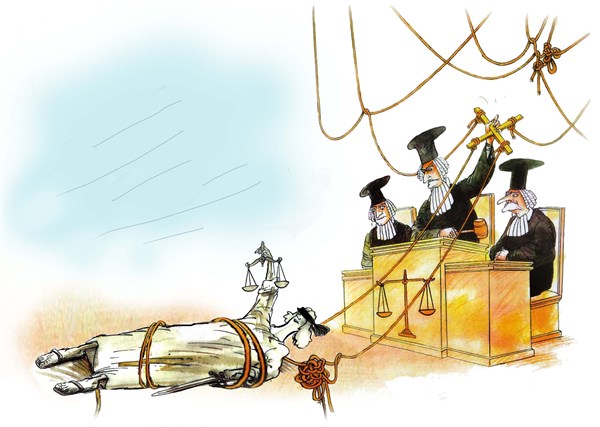As a victim advocate, and as a survivor myself, I am horrified and feel insulted by the changes in the law that California passed in what I call the revictimization of victims, past and present, and a total disregard for victims’ right to justice and to protection.
It is crucial to understand what victims of crime go through, at the time of the incident and as they heal. Yes, victims become survivors, eventually, but it takes months, years, and, in some cases, a lifetime. Anyone who has been victimized by criminals, directly or indirectly, will tell you this. I hear it frequently as a victim advocate for a local government agency.
California’s government seems to think that legislators can overlook victims’ rights. Allow me to explain.
Prior to January 1, 2019, murder was defined as an unlawful killing with “expressed malice,” where there was a specific intent to kill, or with “implied malice,” where someone who was aware of that risk, yet with conscious disregard for human life, committed that act anyway.
One did not have to be the actual killer to be guilty of murder. Our laws have long recognized that accomplices were as guilty as the actual perpetrator. For example, the getaway driver is equally guilty of robbery if he/she knew the robbery was going to happen. This is true even if that person stayed in the car the entire time. If that robbery resulted in a murder due to “natural and probable consequences,” that getaway driver would be liable for murder under the “felony-murder rule,” as are the actual killers.
For over 100 years, prosecutors, defense attorneys, judges, and juries all relied on the definition of those crimes and to whom they applied. Our reviewing courts, the Courts of Appeal and California Supreme Court, upheld countless accomplice convictions for those crimes, prior to January 1, 2019.
After Governor Brown signed Senate Bill 1437 last year, the rules and laws of felony-murder and accomplice murder in California changed. The worst part is that this law applies retroactively. Any prior murder conviction that was not proven by the new rules will be vacated (tossed out, like it never happened).
This new law is not based on any decision by a state or federal court. No. The new law is merely a legislative act, a political one, that will require district attorneys to prove past cases using new rules, new laws, and new jury instructions that did not exist before January 1, 2019.
The change in this law not only holds far fewer criminals accountable for their actions but also will release many criminals to freedom. Their convictions will be drastically reduced, with total disregard of victims’ physical safety and emotional well-being. Now, if your loved one was murdered say one, five, ten years ago, would you approve of this law? I doubt it. This is why SB 1437 was never on the ballot, as it should have been, for California voters to decide if they wanted the change. Sneaky move.
Here’s a possible scenario: Three years ago, some gang-bangers became upset with a teenager who was tagging over their graffiti “art.” They saw this as a direct challenge. As a group, they rolled up to him as he walked to school, piled out of their cars, and swarmed him. Each one of them punched and kicked him, and one of them stabbed him in the chest, killing him. All were prosecuted and convicted for murder based on the “natural and probable consequences” doctrine. Each of them agreed to and engaged in the ambush and beatdown of the victim. Under these gangland circumstances, murder was a natural and probable consequence of their assault. Each was sentenced to 15 years to life for second-degree murder; the person holding the knife at the exact moment of the killing was never determined.
Flash forward to January 1, 2019. Because SB 1437 takes retroactive effect, each of our fictitious gangsters can file a petition for resentencing under the new law. Each one of them could even be released from prison by this June at the latest, if they have not been released already.
Think about those who are killed because of a gunshot, a stabbing, an assault, a strangulation (as in domestic violence cases), or a rape, and about those who suffered the death of a loved one due to any crime. I can only imagine the fear, the impotence of knowing that the assassin enjoyed minor consequences and could be roaming the streets, putting them and everyone else in the community at risk.
In my view, this law represents a revictimization of all those for whom I advocate. The worst thing is that our state legislators do not seem to care.
Let your elected officials know your opinion: Senator Hannah-Beth Jackson, (805) 965-0862; Assemblymember Monique Limón, (805) 564-1649; Governor Gavin Newsom, (916) 445-2841.

